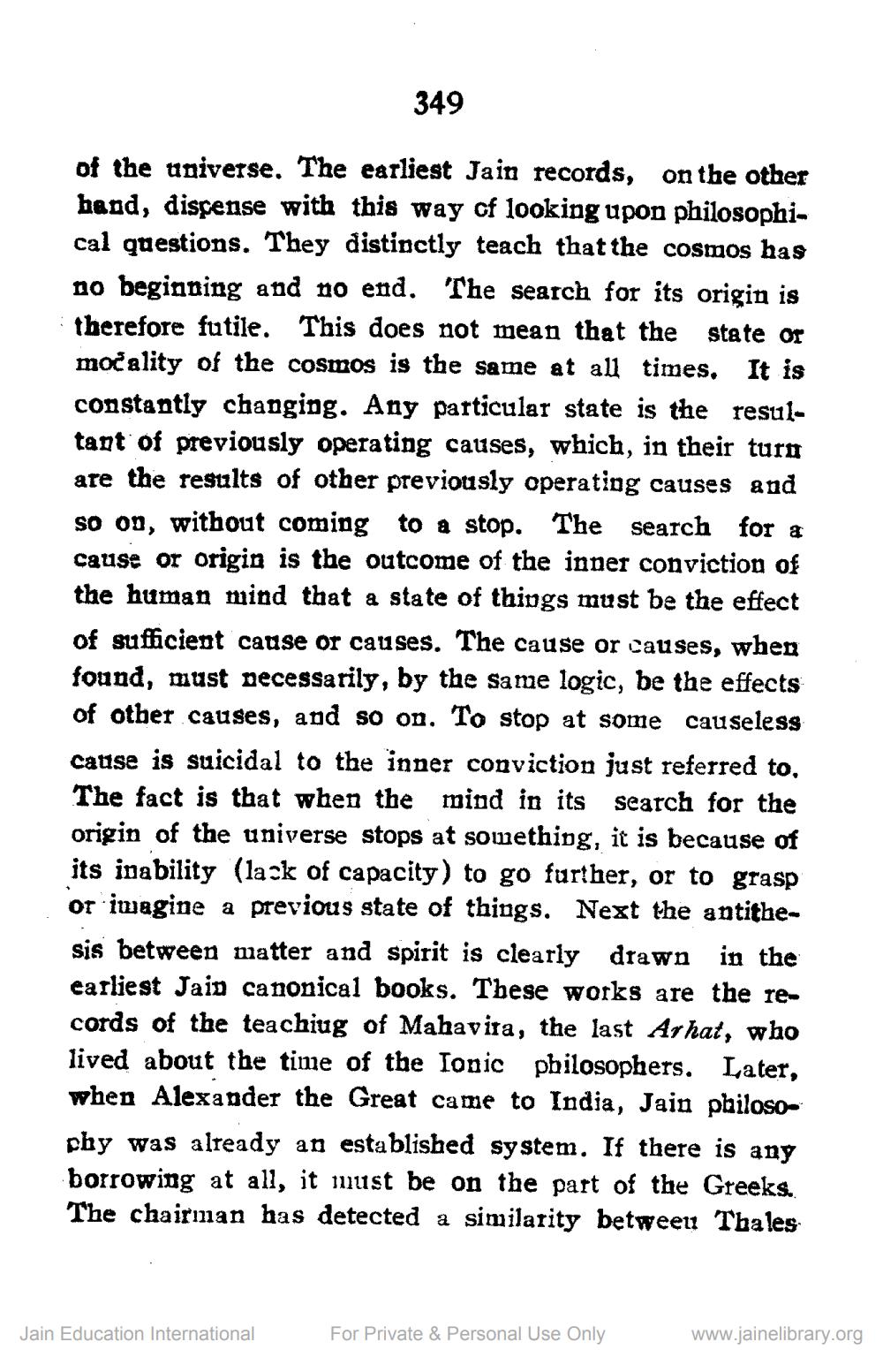________________
349
of the universe. The earliest Jain records, on the other hand, dispense with this way of looking upon philosophical questions. They distinctly teach that the cosmos has no beginning and no end. The search for its origin is therefore futile. This does not mean that the state or modality of the cosmos is the same at all times. It is constantly changing. Any particular state is the resultant of previously operating causes, which, in their turn are the results of other previously operating causes and so on, without coming to a stop. The search for a cause or origin is the outcome of the inner conviction of the human mind that a state of things must be the effect of sufficient cause or causes. The cause or causes, when found, must necessarily, by the same logic, be the effects of other causes, and so on. To stop at some causeless cause is suicidal to the inner conviction just referred to, The fact is that when the mind in its search for the origin of the universe stops at something, it is because of its inability (lack of capacity) to go further, or to grasp or imagine a previous state of things. Next the antithesis between matter and spirit is clearly drawn in the earliest Jain canonical books. These works are the records of the teaching of Mahavira, the last Arhat, who lived about the time of the Ionic philosophers. Later, when Alexander the Great came to India, Jain philosophy was already an established system. If there is any borrowing at all, it must be on the part of the Greeks. The chairman has detected a similarity between Thales
Jain Education International
For Private & Personal Use Only
www.jainelibrary.org




